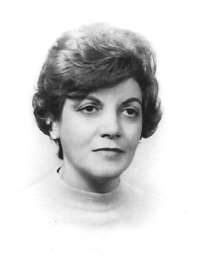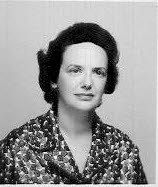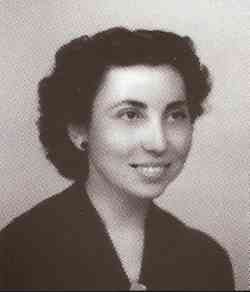Related Research Articles

Domingos Abrantes Ferreira, generally known as Domingos Abrantes, is a Portuguese Communist politician. He has been a member of the Portuguese Communist Party since 1954, and was a member of its Central Committee between 1963 and 2012.
Cesina Borges Adães Bermudes (1908-2001) was a Portuguese obstetrician who introduced the concept of “painless childbirth” to Portugal. She was also a prominent feminist and an opponent of the Estado Novo authoritarian regime, for which she was imprisoned for three months.
The Fort of King Luís I, also referred to as the Fort of Caxias and the Fort-prison of Caxias, is located in the parish of Caxias, in the municipality of Oeiras in the Lisbon district of Portugal. It presently functions as a prison.

Virgínia Moura (1915-1998) was a Portuguese anti-government activist and feminist, opposed to the authoritarian regime known as the Estado Novo. As a member of the Communist Party, she was arrested on 16 occasions for her activities. She was the second Portuguese woman to qualify as a civil engineer.

Maria Lamas was a Portuguese writer, translator, journalist, and feminist political activist.

Clementina Carneiro de Moura (1898-1992) was a Portuguese teacher, modernist painter and promoter of traditional arts.

Maria Luísa Costa Dias (1916–1975), was a Portuguese medical doctor and communist activist in opposition to the authoritarian Estado Novo government.
Albina Fernandes was an active member of the Portuguese Communist Party and a political prisoner during the Estado Novo era.

Julieta Gandra (1917–2007) was a Portuguese doctor who was imprisoned by the Portuguese authorities for supporting Angolan Independence. She was Amnesty International's "Prisoner of Conscience of the Year" in 1964.

Fernanda de Paiva Tomás was a member of the Portuguese Communist Party who spent close to a decade as a political prisoner, from 1961 to 1970, under the authoritarian Estado Novo regime.

Maria Antónia Palla is a journalist, writer and feminist who was one of the first female journalists in Portugal. She played an important role in the legalization of abortion in the country, by promoting the practice in interviews and television programmes. In 2004 Palla was awarded the title of Commander of the Order of Liberty. She is the mother of António Costa, the current Prime Minister of Portugal.
Helena Neves was an active Portuguese communist and feminist and an opponent of the Estado Novo regime in Portugal, being imprisoned on three occasions. She became a successful journalist and was a deputy in the Portuguese parliament, the Assembly of the Republic, in 2001–02. She was also a professor on gender and the women's movement at the Universidade Lusófona in Lisbon.

Stella Piteira Santos (1917-2009) was a Portuguese communist who opposed the Estado Novo dictatorship. Arrested and tortured in Lisbon, she subsequently moved to Algeria, from where she helped broadcast programmes of Rádio Voz da Liberdade to Portugal.

Francine Benoît was a musician, teacher, composer, conductor, and music critic. She played an active role in Portuguese feminist organizations and was an opponent of the Estado Novo dictatorship, which ruled between 1933 and 1974. Born in France, she lived most of her life in Portugal and became a naturalised Portuguese citizen in 1929.
Margarida Tengarrinha was a Portuguese teacher, writer, artist and illustrator. As a member of the Portuguese Communist Party (PCP) she was active as an opponent of the authoritarian Estado Novo regime that governed Portugal between 1926 and 1974, playing a role in document forging and publication of the Party's magazine Avante!. She spent two years in Moscow with the future leader of the PCP, Álvaro Cunhal, and then worked in Bucharest, Romania on a radio station broadcasting to Portugal. After the overthrow of the regime, she became a deputy in the Assembly of the Republic. She later wrote memoirs, taught at a Senior University, illustrated books and exhibited works of art.

Maria Alda Nogueira (1923–1988) was a communist and feminist activist who opposed Portugal's Estado Novo regime and spent nine years as a political prisoner. After the overthrow of the Estado Novo she became a parliamentary deputy, serving in the National Assembly for a decade.

Maria Adelaide Aboim Inglez was a Portuguese communist activist who opposed the authoritarian Estado Novo regime in Portugal.

Georgette Ferreira was a member of the Central Committee of the Portuguese Communist Party (PCP) from 1950 to 1988 who opposed the Estado Novo regime and was the first woman to escape from an Estado Novo political prison. She was a Deputy in the Constituent Assembly of Portugal in 1975 and 1976 and a Deputy in the Assembly of the Republic from 1976 to 1988, on all occasions being elected on the Lisbon list of the PCP.

Ivone Dias Lourenço was a Portuguese communist and an opponent of the Estado Novo regime in Portugal. She spent almost seven years as a political prisoner. A report of her imprisonment in a British newspaper led to her being indirectly connected with the foundation of the human rights organization Amnesty International.
Conceição Matos is a Portuguese communist who campaigned against the authoritarian rule of the Estado Novo regime in the 1960s. She was arrested and subjected to considerable torture.
References
- 1 2 3 4 5 6 Pato, Helena. "Mulheres de Abril: Testemunho de Helena Pato". Esquerda. Retrieved 27 January 2021.
- 1 2 3 "Helena Pato". Almedina. Retrieved 27 January 2021.
- 1 2 3 4 5 Gaspar, Jorge. "As cores dos autores 25 abril: Helena Pato, A noite mais longa de todas as noites". Network Radio. Retrieved 26 January 2021.
- 1 2 3 "Helena Pato". Caminhos da Memória. Retrieved 26 January 2021.
- ↑ "Helena Pato: O primeiro Réveillon no exílio". As Causas da Júlia. Retrieved 26 January 2021.
- ↑ "Confinamentos e histórias de quem os viveu – O testemunho de Helena Pato". Portugal Digital. Retrieved 26 January 2021.
- ↑ "Helena, dos calabouços da PIDE para as redes sociais". Expresso. Retrieved 26 January 2021.